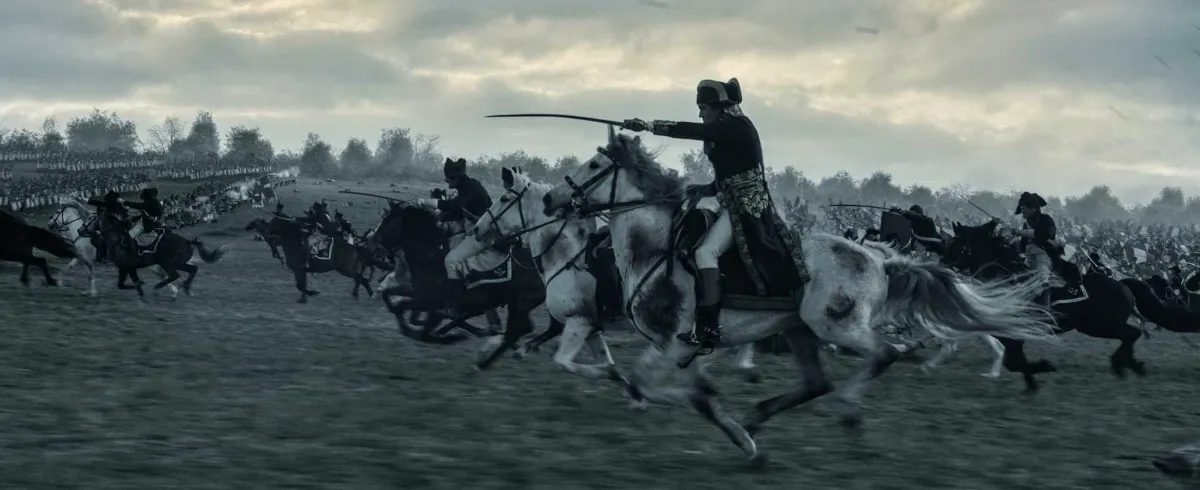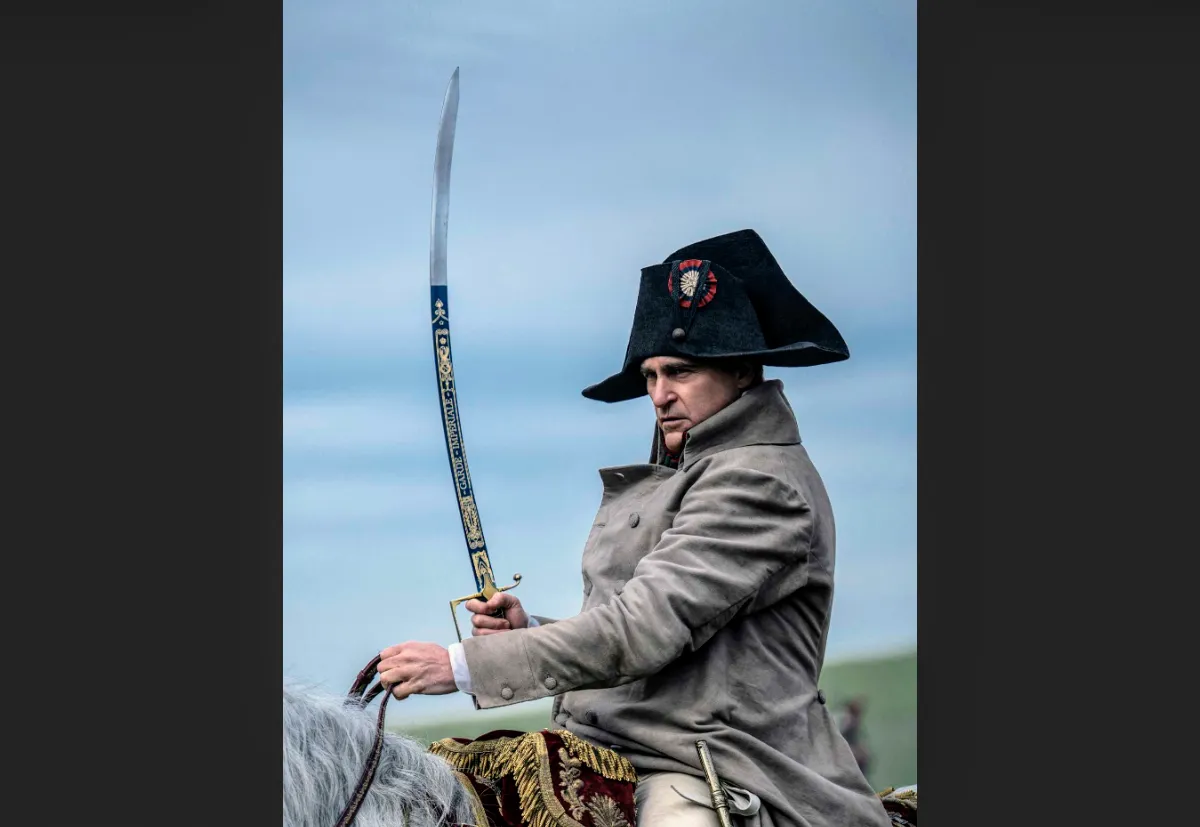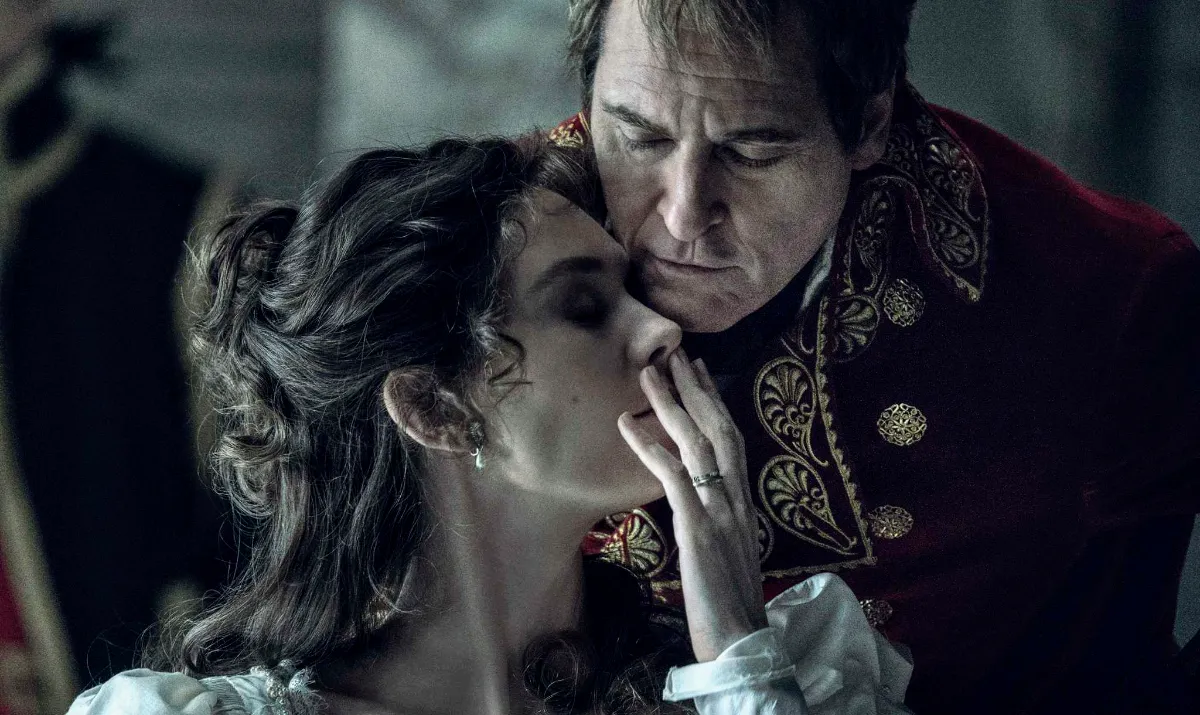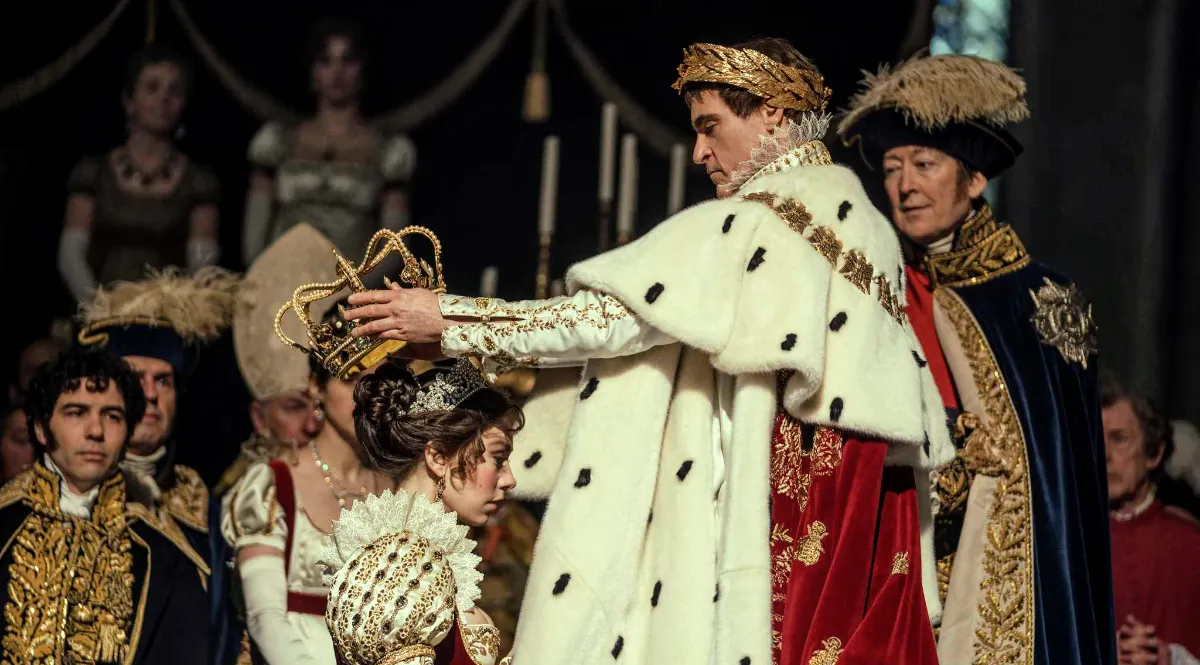
Until now, Napoleon’s worst defeat was Waterloo. Now, it ranks third—behind Ridley Scott and Joaquin Phoenix.
What were they thinking?
That’s not just a rhetorical question. Watching *Napoleon* leaves you wondering why the film was made at all. What was the point? What message were they trying to convey? About halfway through, it becomes clear: maybe Ridley Scott simply wanted to have fun staging the battle scenes, and Joaquin Phoenix just wanted to wear a big hat.
Scott does deliver on the battles, though. The film devotes significant time and care to epic historical clashes like Austerlitz, Borodino, and, of course, Waterloo, capturing both the strategy and the brutal carnage with due respect.

Aside from the sweeping visuals in the 1966 Russian adaptation of *War and Peace*, *Napoleon* offers the most realistic and visceral portrayals of Napoleonic warfare ever put on screen. If you've ever wanted to grasp the devastating impact of cannon fire on a front line, or see how a tightly formed infantry can fend off a cavalry charge, this film delivers. (Until now, I had never witnessed a horse struck by a cannonball on film. I don’t need to see it again—but it left an impression.)
However, nothing Ridley Scott or Joaquin Phoenix does can justify Phoenix’s portrayal of Napoleon. The height mismatch is the least of the issues. The real problem is age. The film opens with Napoleon at 24 and tracks his career through the Battle of Waterloo, when he was 43. Phoenix is 49—and looks it.
This age gap skews the dynamic between Napoleon and his first wife, Josephine (played by Vanessa Kirby). She’s meant to be an older, worldly figure whom he idolizes. Yet on screen, Phoenix appears older than she does. That changes the tone entirely. A 25-year-old obsessed with an older lover can be seen as naïve or emotionally immature. But a 45-year-old still caught in that pattern feels stunted, even pitiable.

But the most glaring flaw in Phoenix’s portrayal of Napoleon is how completely it diverges from the historical figure. Phoenix plays him as a brooding, awkward presence—mumbling to himself, smirking at private jokes, and staring blankly into the distance—essentially the same persona he brings to many of his roles. But the real Napoleon, by all accounts, was charismatic, witty, and unpredictable. Phoenix’s version is slow, stoic, and emotionally flat. The real Napoleon was magnetic and menacing; Phoenix comes off more like a sulky bystander than a revolutionary force.
At one point, a character calls Napoleon “the greatest leader in the history of the world,” and it lands hollow. The film gives you no reason to believe that. Nor does it question the claim. We never witness Napoleon’s leadership beyond battlefield logistics—nothing of his political genius, his public appeal, or the influence that made him a legend.

Perhaps a case could be made that the film is a comedy and that Scott intends to present Napoleon as a goofball. How else to explain the scene in which the French emperor complains to the British ambassador, “You think you’re so great because you have boats!” He sounds like an 8-year-old.
The film also finds fun in presenting Napoleon as the world’s worst lover. His idea of foreplay is similar to his battle strategy — he never loses the element of surprise.
